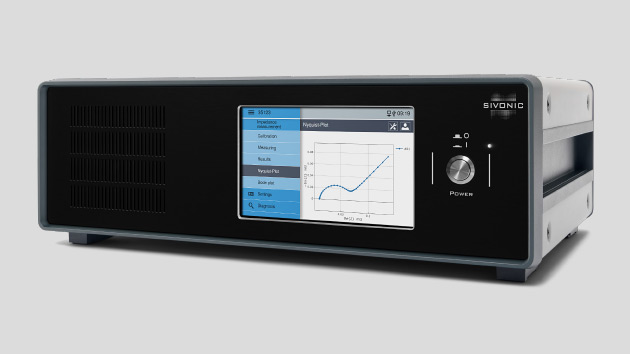Knowledge on EIS, Batteries, Fuel Cells and Electrolyzers
Electrochemical Impedance Spectroscopy (EIS) has become a key technology for the analysis and optimization of modern electrochemical systems. Whether used in laboratories, development environments or automated production lines, EIS provides highly sensitive, non-invasive insights into the behavior of batteries, fuel cells, electrolyzers and corrosion-critical materials.
With the Knowledge section, SIVONIC offers a central resource that consolidates definitions, background information, diagnostic methods and technical insights in a clear and accessible manner. The goal is to support researchers, developers and production engineers with reliable, application-relevant information on modern measurement and diagnostic techniques.
Glossary
The comprehensive SIVONIC glossary explains essential terms related to impedance spectroscopy, electrochemical energy converters and quality assurance. Each term is clearly structured and linked to practical application contexts.
The glossary is continuously expanded and serves as a solid reference for the daily use of EIS in research and industry.
Case Studies
Discover how SIVONIC's electrochemical impedance spectroscopy (EIS) is used in practice in our case studies. Using real-world examples from battery, fuel cell, and electrolysis applications, we show how our measurement technology helps to specifically improve the performance, quality, and service life of electrochemical systems. The case studies offer you a quick and clear introduction to the wide range of applications for modern EIS diagnostics.
Testing Procedures & Standards
In the sub-section “Testing Procedures & Standards”, you will find harmonized EU methods for electrochemical impedance spectroscopy, protocols for accelerated stress tests, standardized procedures for high- and low-temperature electrolysis, and regulatory frameworks such as the EU Battery Regulation 2023/1542. This content supports organizations in designing compliant test processes and interpreting EIS data according to recognized international standards.
Patents – Protected Technologies for Electrochemical Diagnostics
SIVONIC develops measurement and diagnostic solutions that set new standards for precision and efficiency across various electrochemical applications. A crucial element of this technological differentiation is our portfolio of patented innovations.
Our patents protect advanced methods and measurement principles applied in EIS analysis as well as in fuel cell, battery, and electrolyzer systems. They reflect not only the depth of our research, but also our commitment to making electrochemical processes more transparent, reliable, and ready for industrial deployment.
A complete overview of these protected technologies, including concise summaries, is available under Patents.


